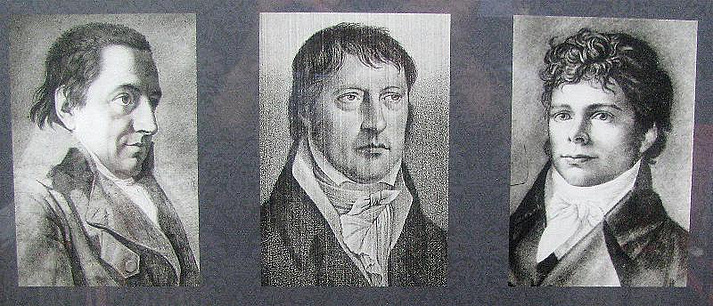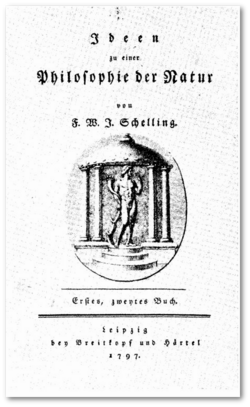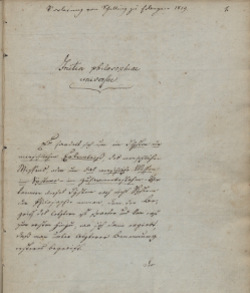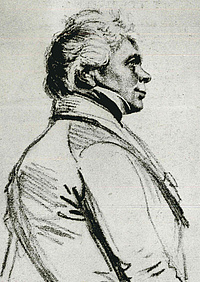Past and Present Engagement for a Reliable Tradition

During World War II a lot of precious cultural assets had been destroyed, among them many books and manuscripts. Aware of these grave losses in the years after the war important editions were launched. This also happened during a time when the east-west-conflict started, a conflict that was fought in the political arena but also in behalf of Europe’s cultural heritage. A special object of dispute was the philosophy of German Idealism which one side claimed as an intellectual pioneer for Marx, the other as a pioneer for freedom and democracy. In this dispute reliable text sources were needed hence editions were established, first the Hegel-Edition and then the Fichte-Edition.
Finally the researchers Horst Fuhrmans and Hermann Zeltner initiated the Schelling-Edition. For their project they gained the support of Alois Dempf, who was promoting the founding of the Schelling-Kommission in 1968, becoming its first chairman. In 1973 he was succeeded by Hermann Krings. Hans Michael Baumgartner, Wilhelm G. Jacobs, Hermann Krings and Hermann Zeltner became editors.
Fuhrmans and Zeltner had obtained a DFG grant which expired in 1969. It was not until 1972 that the Academy of Sciences set up a position, three additional positions were funded by the DFG. Frommann-Holzboog, who was already publishing the Fichte-Edition, also took on the publication of the Schelling-Edition, which was designed and explicitly declared being historical-critical.
Preparing the Basis for Scientific Exchange
At first the Work-Series was being tackled, since the larger part of Schelling’s posthumous papers was located in the Akademie der Wissenschaften of the GDR, today BBAW. For the time being there was no access to these materials. It therefor was extremely important to let this academy know, that the task at hand was about editing factually and historically-critically, thereby avoiding painstakingly ever personal comment – as it is good practice in scientific editing – in order to prepare a sustainable ground for interpreting works. The first volumes, published starting in 1976, were convincing. As a result the Kommission obtained step by step films of the posthumous papers.
The Work-Series

At first the Kommission’s work concentrated on the Work-Series (I). Here the writings on Naturphilosophie (vol. I 5-9) caused major problems because Schelling refers extensively to the science of his time, today only known to few experts. A simple quote wouldn’t do for explanation since it derived from a context unfamiliar to a philosopher today, in need of explanation itself. Multiple possibilities were discussed and came up with two alternatives: either necessary quotes were furnished with explanations of the editors or a historical scientific report was being authored and added to the edition for reference when using quotes. It was decided for the latter one. This way Schelling’s Naturphilosophie became apparent as a genuine critical approach to the developments at that time and this way fruitful for discussion today.
The Posthumous Papers

Working on the posthumous papers series was to begin with his early writings. A pilot project »Timaeus 1794« was published in 1994, the student’s reflection of Platon and Kant, disproving impressively the old assumption of Schelling becoming a philosopher only through Fichte.
The posthumous papers of student Schelling among others contains manuscripts on the exegesis of the Old and New Testaments. Editing them required the knowledge of not only Hebrew but also other semitic languages. This task was assumed by the protestant theologian Christian Danz and his team from Vienna. The first volume (II 3) was published in 2013. Lore Hühn and her team in Freiburg took on the highly complex edition of the Erlangen lectures (volume II 10). It includes editing 1) extensive and 2) short elaborations handwritten by Schelling, 3) his son’s print of Schelling’s first lectures, 4) two student transcripts. This volume will soon be in print.
As it was the case here there were also other occasions, when new texts, especially transcripts of Schelling’s lectures were found. These findings, fortunate as they are, cause unforeseen loads of work, since they at least have to be deciphered and decided on concerning their entry into the edition.
Transition to the 21. Century

Since the year 2000 there has been a number of changes within the circle of the people being part of the Projekt. In 2001 chairman Hermann Krings retired, Gerhard Neumann became chairman until 2009, followed by Frank Büttner as chairman today. A number of older colleagues retired. At the time of the Kommission switching to Projects all vacant positions have been refilled, namely with Christoph Binkelmann (Secretary), Patrick Leistner, Vicki Müller-Lüneschloß, Ives Radrizzani, Daniel Unger. Current editors are Jörg Jantzen (managing), Thomas Buchheim, Jochem Hennigfeld, Wilhelm G. Jacobs and Siegbert Peetz.
